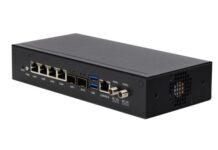Corporate parks are indeed a growing trend in India, particularly in metro cities like Mumbai, Chennai, Hyderabad, Bangalore and Kolkata where they’ve transformed the corporate landscape by offering premium office spaces, advanced technology infrastructure, and employee-focused amenities. These parks prioritize sustainability, flexibility, and technological advancements. The Security Management in Corporate Parks is a perpetual challenge. It requires best practices to be implemented for Corporate Security requirements. Locations with the region’s top business parks can provide a strategic advantage for businesses if it is backed by smart security management.
In the prevailing VUCA (Volatility, Uncertainty, Complexity and Ambiguity) environment, multiple challenges are lurking on the corporate security front. Securing video security management functions is crucial for swift operations in a corporate environment. The stakes are always high because corporate parks are a highly sensitive zone due to various factors. The corporate parks are mission-critical establishments; they are open 24/7, 365 days a year. They face various security management challenges that can impact the safety of employees, assets, and overall business operations.
Some of the key operational challenges include:
Inadequate Access Control: Outdated key card systems or physical locks can be easily compromised, allowing unauthorised access to restricted areas. Implementing modern access control systems like biometric scanners, RFID cards, or smart locks can enhance security.
Insufficient Employee Training: Employees should be aware of security protocols, incident response, and recognising suspicious behaviour. Regular training ensures employees are aware of security procedures and can respond effectively in emergencies.
Cybersecurity Threats: Integrating physical security measures with cybersecurity protocols is crucial to prevent hacking and data breaches. The cyber security attack targets include video security systems, access control, and network infrastructure.
Outdated Security Technologies: Using outdated surveillance systems, alarm systems, or other security technologies can leave corporate parks vulnerable to security breaches. Upgrading to modern systems with AI-powered analytics and real-time monitoring can improve security.
Perimeter Security: Establishing a secure perimeter with physical barriers like fences, gates, and access control points can prevent unauthorised access.
Emergency Preparedness: Developing and practicing emergency response plans helps corporate parks respond effectively to security incidents, natural disasters, or other emergencies.
To overcome these challenges, corporate parks can implement the following best practices:
Regular Security Audits: Conducting regular security audits helps identify vulnerabilities and weaknesses in security systems.
Multi-Factor Authentication: Implementing multi-factor authentication enhances access control and protects sensitive information.
Collaboration and Communication: Fostering cooperation between stakeholders, including property managers, tenants, law enforcement, and security service providers, enhances the overall security posture.
Incident Response Planning: Developing incident response plans and conducting regular training ensures an effective response to security incidents.
Continuous Improvement: Regularly reviewing and updating security policies, procedures, and technologies helps stay ahead of emerging security threats.
Here are some critical measures to consider in large commercial establishments and corporate parks.
Access Control: It is a strategic solution to implement role-based access control to restrict access to authorised personnel. It is a must to use strong passwords, multi-factor authentication, and secure login protocols.
Data Encryption: Encrypt video feeds and recordings to prevent unauthorised access. It is advisable to use secure protocols for data transmission and storage.
Network Security: It is a good idea to implement a secure network architecture, including firewalls and intrusion detection systems. The end-users must use virtual private networks (VPNs) for remote access.
System Monitoring: It is a herculean task to monitor the video security system for potential security breaches continuously. The security managers need to implement incident response plans to respond to security incidents quickly.
Software Updates: Regularly update video security software to ensure you have the latest security patches. Use reputable software vendors that prioritise security.
Physical Security: Ensure physical security of video security equipment, such as cameras and recording devices. Use tamper-evident and tamper-resistant equipment.
Compliance: Ensure compliance with relevant local regulations. Implement data retention and disposal policies that meet regulatory requirements.
Training: Provide regular training to personnel on video security best practices and incident response. Ensure personnel understand the importance of security and their roles in maintaining it.
Securing video security management functions requires a multi-faceted approach and adherence to best practices suggested by Hikvision. In large corporate parks any security breach or incident may have multiple implications on reputation and business continuity, while implementing these measures, one can help secure corporate business park’s video security management functions and ensure swift operations to serve the security management goals.


















